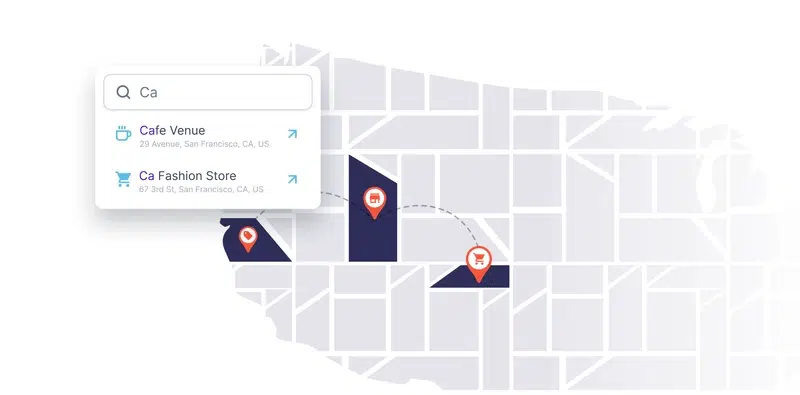Identity data is a cornerstone of the digital economy, enabling businesses and organizations to verify, manage, and understand individuals’ and entities’ identities.
This article delves into the key applications of identity data across various industries, highlighting how it enhances security, personalization, and operational efficiency.
Whether you’re in finance, healthcare, retail, or any other sector, understanding the applications of identity data is crucial for leveraging its full potential.
Identity Data Definition
Identity data refers to information that uniquely identifies individuals or entities. This data includes attributes such as names, addresses, email addresses, phone numbers, social security numbers, biometric data, and more. It forms the foundation for digital identities, which are used for authentication, personalization, and analysis.
Key Use Cases of Identity Data Across Industries
Finance and Banking
Customer Onboarding
Identity data plays a vital role in the customer onboarding process. Financial institutions use it to verify the identities of new customers, ensuring compliance with Know Your Customer (KYC) regulations and helping prevent fraud and money laundering.
Fraud Detection
By analyzing identity data, banks can detect unusual patterns that may indicate fraudulent activities. Advanced algorithms and machine learning models can identify anomalies in transaction behaviors, helping to protect both the institution and its customers.
Healthcare
Patient Identification
Accurate patient identification is critical in healthcare. Identity data ensures that medical records are correctly matched to patients, reducing the risk of errors and improving patient safety. It also facilitates the seamless sharing of patient information across different healthcare providers.
Secure Access to Medical Records
Identity data is used to authenticate healthcare professionals and patients, ensuring that only authorized individuals can access sensitive medical records. This enhances the security and privacy of patient information.
Retail and E-commerce
Personalized Shopping Experiences
Retailers leverage identity data to provide personalized shopping experiences. By understanding customer preferences and behaviors, businesses can tailor product recommendations, promotions, and marketing messages to individual customers.
Customer Relationship Management
Identity data is crucial for managing customer relationships. It helps retailers maintain accurate customer profiles, track purchase histories, and engage with customers through targeted communications, enhancing customer loyalty and satisfaction.
Subscriber Identification
Telecom companies use identity data to verify the identities of their subscribers. This is essential for preventing fraud, managing customer accounts, and ensuring secure access to telecom services.
Fraud Prevention
Identity data helps telecom providers detect and prevent fraud, such as SIM swapping and identity theft. By analyzing identity-related data, they can identify suspicious behaviors and take proactive measures to protect their customers.
Government and Public Sector
Citizen Identification
Governments use identity data to issue identification documents such as passports, driver’s licenses, and national IDs. This data is essential for verifying citizens’ identities and providing secure access to public services.
Service Delivery
Identity data facilitates the efficient delivery of government services. It ensures that social benefits, healthcare, education, and other public services are accurately and securely provided to eligible individuals.
Note: Download free sample Identity Data
Future Trends in Sourcing Identity Data
Enhanced Data Privacy Regulations
As data privacy concerns grow, future trends in sourcing identity data will involve stricter compliance with data protection regulations like GDPR and CCPA. Organizations must adopt robust data governance frameworks to ensure the secure handling of identity data.
Advanced Authentication Methods
The future will see increased use of advanced authentication methods such as biometric verification, multi-factor authentication (MFA), and blockchain-based identity management. These methods will enhance the security and accuracy of identity verification processes.
Integration with Artificial Intelligence (AI)
AI and machine learning technologies will play a significant role in the future of identity data management. These technologies will enable more sophisticated data analysis, fraud detection, and personalized service delivery.
Decentralized Identity Solutions
Decentralized identity solutions, such as those based on blockchain technology, will become more prevalent. These solutions give individuals greater control over their identity data and enhance privacy and security.
IoT and Identity Data
Integrating identity data with the Internet of Things (IoT) will open new possibilities for personalized and context-aware services. IoT devices will leverage identity data to provide seamless and customized user experiences.
Conclusion
Identity data is an essential asset with broad applications across numerous industries. It plays a crucial role in enhancing security measures, personalizing customer experiences, ensuring regulatory compliance, and boosting operational efficiency.
As technology continues to advance, the methods of sourcing and utilizing identity data will evolve, presenting both opportunities and challenges. By effectively harnessing the potential of identity data, organizations can achieve greater efficiency, improve customer engagement, and contribute to a more secure, personalized, and dynamic digital environment.




